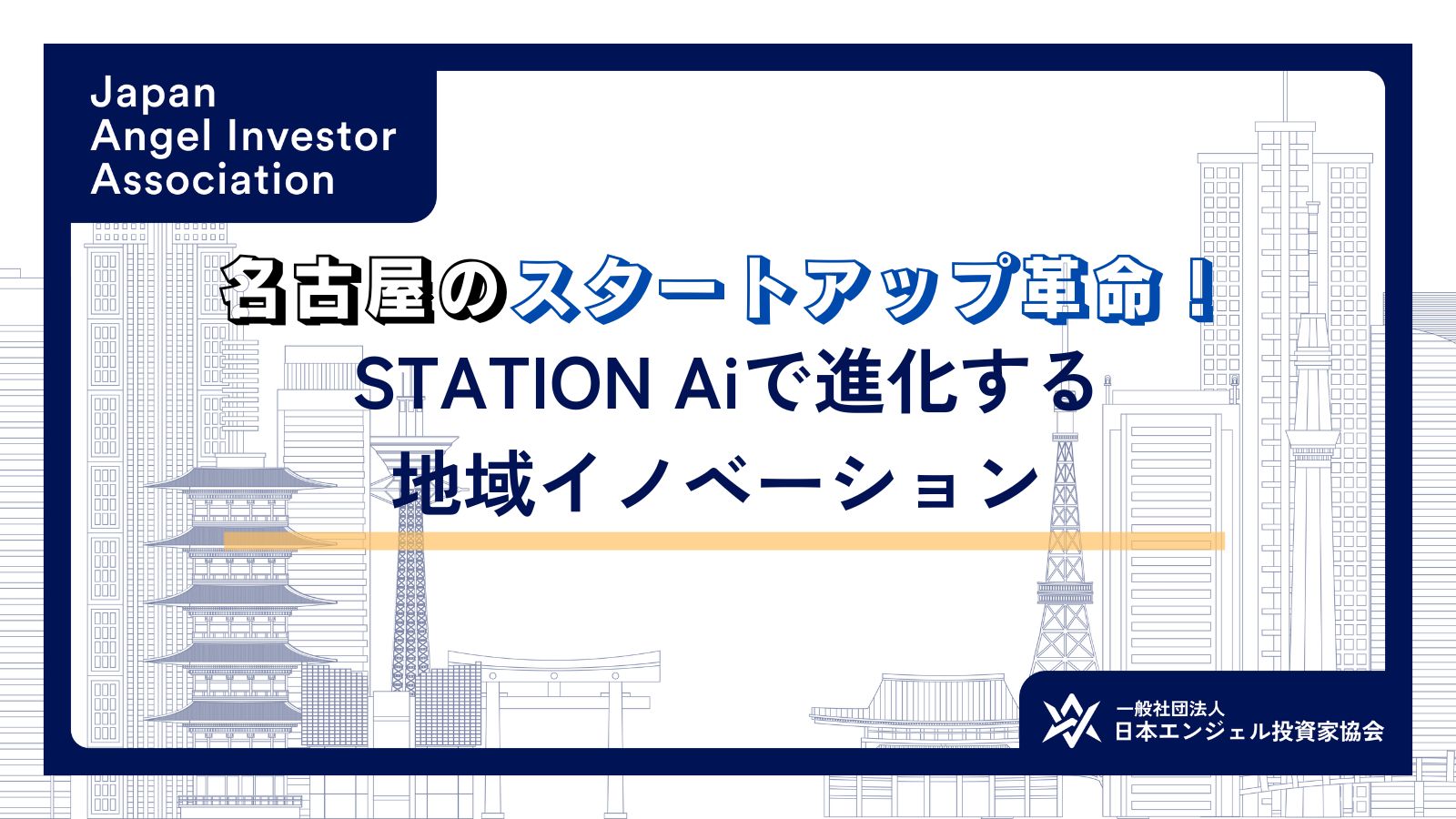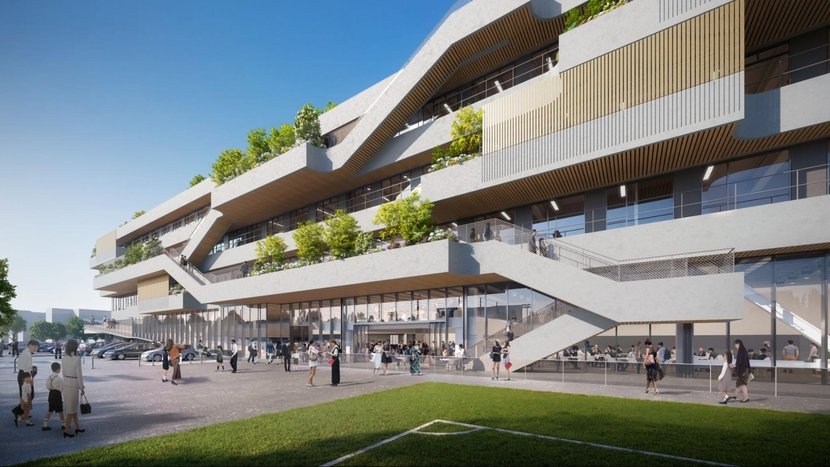

2024.10.31
Column

Our association is dedicated to enhancing the angel investment environment in Japan and supporting the growth of startups. Through monthly updates, we share activity reports, the latest news, pitch event highlights, and various insights related to angel investing.
Located in Nagoya City, Aichi Prefecture, STATION Ai has gained attention as one of Japan’s largest open innovation hubs. While Nagoya has long been known for its strengths in manufacturing and the automotive industry, it has faced challenges in developing a thriving startup ecosystem. However, with the establishment of STATION Ai, signs of regional revitalization and global ambition are emerging.
In this article, we’ll explore the unique characteristics and challenges of Nagoya, the potential of STATION Ai, and a comparison with global examples to examine the future of regional startup support.
Opened on October 31, 2024, near Tsuruma Park in Nagoya, STATION Ai spans approximately 23,000 square meters, making it one of Japan’s largest open innovation hubs. The facility hosts around 500 startups, alongside 200 other entities, including corporations, venture capital firms, research institutions, and local governments, creating a vibrant space for innovation.
Beyond providing office spaces, STATION Ai offers comprehensive support programs such as matchmaking events with domestic and international investors and expert mentoring. These initiatives aim to help regional entrepreneurs access funding and networks. Nagoya City’s substantial investment in the “Startup Support Subsidy Program” further underscores the government’s commitment.
The facility also features state-of-the-art research equipment, with particular emphasis on fostering innovation in automotive technology and environmental solutions. Addressing previous regional challenges, such as limited external funding and talent influx, STATION Ai is positioned to transform the local industrial structure and spark new opportunities.

Aichi Prefecture, home to Nagoya, is a manufacturing and industrial powerhouse, producing approximately 16% of Japan’s total manufacturing output, led by companies like Toyota. While this stable industrial base is a regional strength, it has also limited the growth of emerging businesses.
According to a labor force survey by Japan’s Ministry of Internal Affairs and Communications, as of January 2024, 87,873 employees worked in startup companies. In comparison, Tokyo’s startup employment accounted for 8.12% of its total workforce, significantly outpacing Osaka and Aichi. This highlights Tokyo’s dominance and the need for regions like Nagoya to catch up.
Nagoya’s reputation as a “closed-off city” has also been cited as a barrier to attracting external talent and capital. However, recent initiatives, such as the Aichi Open Innovation Accelerator, have started to lay the foundation for supporting both regional and external startups. Local universities and research institutions, like Nagoya University, are leading efforts to commercialize research outcomes, creating a robust environment for innovation.

Number of people working at startup companies (STARTUP DB survey)
Silicon Valley, a global benchmark for startup ecosystems, thrives on collaboration between research institutions like Stanford University and UC Berkeley, major tech companies, and fearless angel investors. With approximately 100,000 startups, Silicon Valley raised $60 billion in 2023, demonstrating its enduring dominance in fields like AI.
(Source: CB Insights, “2023 Venture Capital Investment Report”)
In contrast, STATION Ai seeks to develop a support system tailored to Japan’s regional characteristics. While drawing on Silicon Valley’s open and dynamic culture, it leverages Nagoya’s strengths in manufacturing and its community-centric economic base. With fewer angel investors and venture capital firms compared to Silicon Valley, Japan’s public sector plays a crucial role in bridging the gap.
By involving the broader community, STATION Ai offers a unique model of startup support that is both innovative and regionally grounded.

Silicon Valley dominates other regions in AI
STATION Ai is more than a startup incubator; it has the potential to position Nagoya as an international innovation hub. Plans to house dozens of overseas companies indicate a strong global outlook.
The expected synergies between local industries, particularly in manufacturing and automotive sectors, and startups focused on solutions like carbon neutrality and autonomous driving technologies could lead to groundbreaking advancements.
On the funding side, startup investment in Aichi Prefecture reached ¥5 billion in 2023, marking a 20% year-over-year increase. As such funding is utilized effectively through STATION Ai, the growth of Nagoya’s startup ecosystem is likely to accelerate.
(Source: 2023 Aichi Startup Fundraising Rankings)
The success of STATION Ai could inspire similar initiatives across Japan, from Fukuoka’s “Fukuoka Growth Next” to Niigata’s “NINNO.” These examples showcase how connecting regional industries with startups can strengthen local ecosystems. Increased collaboration between regions could further bolster Japan’s startup landscape as a whole.
Aligned with the Japanese government’s regional revitalization policies, STATION Ai serves as a model case for innovation driven by local characteristics.
By expanding support measures tailored to regional strengths, we can anticipate a future where Japan’s economic revitalization is powered by startups across the nation.